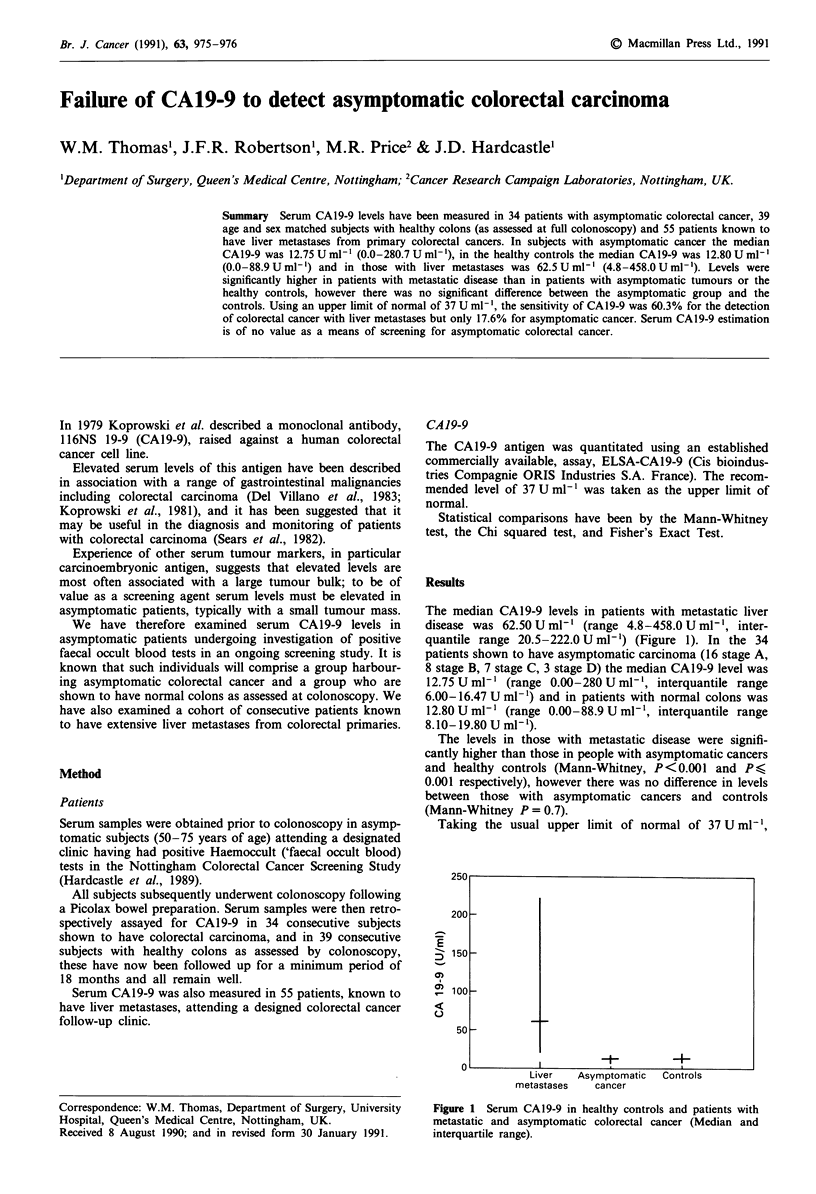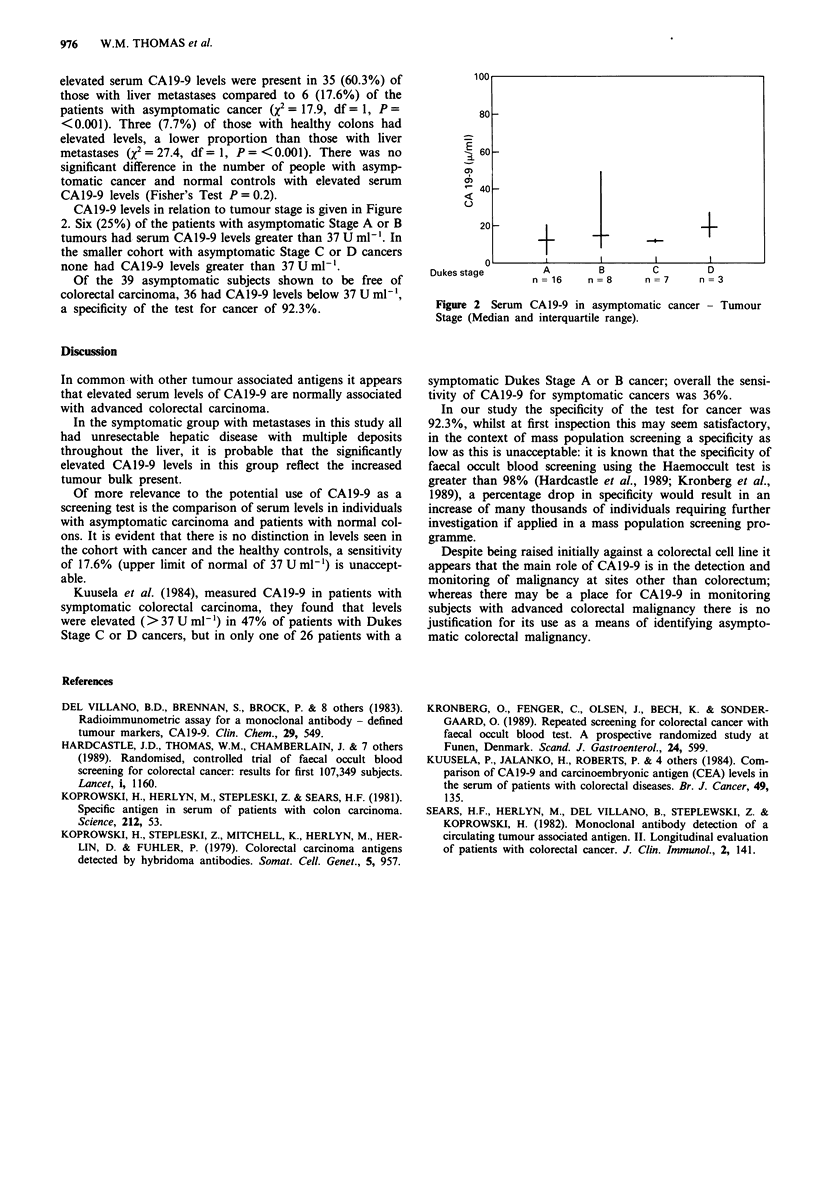Abstract
Serum CA19-9 levels have been measured in 34 patients with asymptomatic colorectal cancer, 39 age and sex matched subjects with healthy colons (as assessed at full colonoscopy) and 55 patients known to have liver metastases from primary colorectal cancers. In subjects with asymptomatic cancer the median CA19-9 was 12.75 U ml-1 (0.0-280.7 U ml-1), in the healthy controls the median CA19-9 was 12.80 U ml-1 (0.0-88.9 U ml-1) and in those with liver metastases was 62.5 U ml-1 (4.8-458.0 U ml-1). Levels were significantly higher in patients with metastatic disease than in patients with asymptomatic tumours or the healthy controls, however there was no significant difference between the asymptomatic group and the controls. Using an upper limit of normal of 37 U ml-1, the sensitivity of CA19-9 was 60.3% for the detection of colorectal cancer with liver metastases but only 17.6% for asymptomatic cancer. Serum CA19-9 estimation is of no value as a means of screening for asymptomatic colorectal cancer.
Full text
PDF

Selected References
These references are in PubMed. This may not be the complete list of references from this article.
- Del Villano B. C., Brennan S., Brock P., Bucher C., Liu V., McClure M., Rake B., Space S., Westrick B., Schoemaker H. Radioimmunometric assay for a monoclonal antibody-defined tumor marker, CA 19-9. Clin Chem. 1983 Mar;29(3):549–552. [PubMed] [Google Scholar]
- Hardcastle J. D., Thomas W. M., Chamberlain J., Pye G., Sheffield J., James P. D., Balfour T. W., Amar S. S., Armitage N. C., Moss S. M. Randomised, controlled trial of faecal occult blood screening for colorectal cancer. Results for first 107,349 subjects. Lancet. 1989 May 27;1(8648):1160–1164. doi: 10.1016/s0140-6736(89)92750-5. [DOI] [PubMed] [Google Scholar]
- Koprowski H., Herlyn M., Steplewski Z., Sears H. F. Specific antigen in serum of patients with colon carcinoma. Science. 1981 Apr 3;212(4490):53–55. doi: 10.1126/science.6163212. [DOI] [PubMed] [Google Scholar]
- Koprowski H., Steplewski Z., Mitchell K., Herlyn M., Herlyn D., Fuhrer P. Colorectal carcinoma antigens detected by hybridoma antibodies. Somatic Cell Genet. 1979 Nov;5(6):957–971. doi: 10.1007/BF01542654. [DOI] [PubMed] [Google Scholar]
- Kronborg O., Fenger C., Olsen J., Bech K., Søndergaard O. Repeated screening for colorectal cancer with fecal occult blood test. A prospective randomized study at Funen, Denmark. Scand J Gastroenterol. 1989 Jun;24(5):599–606. doi: 10.3109/00365528909093096. [DOI] [PubMed] [Google Scholar]
- Kuusela P., Jalanko H., Roberts P., Sipponen P., Mecklin J. P., Pitkänen R., Mäkelä O. Comparison of CA 19-9 and carcinoembryonic antigen (CEA) levels in the serum of patients with colorectal diseases. Br J Cancer. 1984 Feb;49(2):135–139. doi: 10.1038/bjc.1984.25. [DOI] [PMC free article] [PubMed] [Google Scholar]
- Sears H. F., Herlyn M., Del Villano B., Steplewski Z., Koprowski H. Monoclonal antibody detection of a circulating tumor-associated antigen. II. A longitudinal evaluation of patients with colorectal cancer. J Clin Immunol. 1982 Apr;2(2):141–149. doi: 10.1007/BF00916898. [DOI] [PubMed] [Google Scholar]


